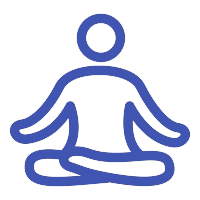How are you?
Is this something you ever ask yourself?
Is this something you believe is necessary?
If you have not asked yourself this question, why not?
Why You MATTER
- You are the lynchpin of your child or partner’s care
- Your wellbeing – both physical and mental, does impact on those you are caring for
- It is important to re-charge your batteries. This enables you to have the resilience required to be an advocate for the longhaul
YOU'RE IMPORTANT TO THOSE YOU CARE FOR
Focus on how much you love the person you care for and what you wish for them…
…Try to imagine, in reverse, just how much they love and care for you…
Realise that, by taking care of yourself, you can empower them and make them feel that they are contributing to your wellbeing
HOW CAN I PRACTICE SELF-CARE?
- Make time for yourself
- Share your feelings
- Never be afraid to ask for help
- Become part of a peer support group
- Seek support from your NMO and Haemophilia Centre
- Smell the roses…
SImple self-care top tips

Meditate
First thing in the morning or last thing at night for 10 minutes

Recruit support
Enlist support from: family, friends, neighbours

Peer groups
Join a peer support group

Take up an activity
Take up, or maintain, an activity that is important to you such as art, music or a form of exercise. Even once a week

Be mindful
Practice mindfulness or other therapies

Be kind
Be kind to yourself!
Join an EHC Peer Support Group
Ensure you join and participate in two new peer support groups being set up by the EHC for parents and partners. Building on observations and feedback from the Inhibitor Summits, the EHC has created these groups in order to give you a safe space where you can share concerns and worries, and, importantly, also find friendship and common ground with others in similar situations.
